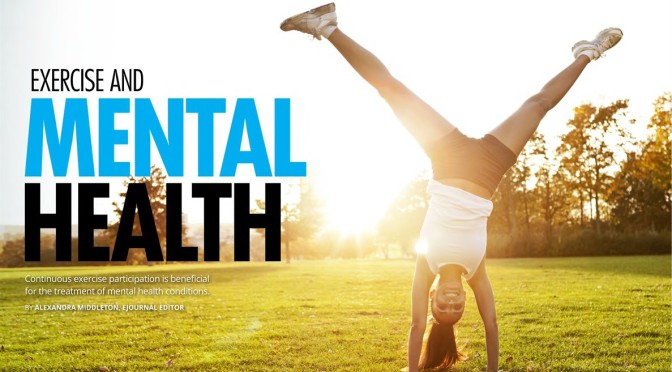As we already know that exercise is good for your body. In any case, practice is likewise one of the best approaches to improving your emotional wellness. It’s likewise compelling in managing misery, nervousness, stress, and the sky is the limit from there.
What are the mental health benefits of exercise?
Engaging in regular exercise can have a profoundly positive impact on both physical and mental well-being. Among its many benefits, exercise can help reduce symptoms of melancholy, tension, and ADHD, while also alleviating stress and promoting improved memory and quality of sleep. Notably, modest amounts of physical activity can be particularly efficacious. In other words, you need not be a fitness fanatic to reap the rewards of regular exercise. Whether you are young or old, fit or not, you can leverage exercise as a powerful tool for feeling your best.
Exercise can’t be about the high-impact limit and muscle size. Indeed, exercise can improve your physical well-being and your constitution, trim your waistline, improve your sexual coexistence, and even add a very long time to your life. In any case, that is not what propels a great many people to remain dynamic.

Related: HIIT workout you can do anywhere
People who exercise regularly tend to do so because it gives them an enormous sense of well-being. They feel steady enthusiastic for the whole day, rest better around night time, have more sharpened memories and feel progressively free and positive about themselves and their lives. What’s more, it’s an additionally amazing medication for some, normal psychological well-being difficulties.
One more benefit is that it stimulates a hormone named endorphins.
This hormone reduces pain and causes happiness.
One more benefit is that it increases the serotonin hormone which is an anti-depressant and helps with your joys.
The third advantage that I worked out, makes you more brilliant. Particularly when your activity developments are muddled, for models like moving or high impact exercise. Your mind delivers more synapses and more associations between current cells.
Also, the undeniable advantage of practicing is certainty or confidence. A solid body and solid muscles cause you to feel you can accomplish increasingly physical undertakings and support yourself better.
Other mental and emotional benefits of exercise
Sharper memory and thinking:
Similar endorphins that cause you to feel better additionally assist you with concentrating and feel intellectually sharp for jobs needing to be done. Exercise additionally animates the development of new synapses and forestalls age-related decrease.
Higher self-esteem
Ordinary action is an interest in your psyche, body, and soul. At the point when it turns into a propensity, it can encourage your feeling of self-esteem and cause you to feel solid and ground-breaking. You’ll rest easy thinking about your appearance and, by meeting even little exercise objectives, you’ll feel a feeling of accomplishment.
Better sleep
Indeed, even short explosions of activity in the first part of the day or evening can help direct your rest designs. On the off chance that you like to practice around evening time, loosening up activities, for example, yoga or delicate extending can help advance rest.
More energy
Expanding your pulse a few times each week will surrender you more get and-go. Start off with only a couple of moments of activity every day, and increment your exercise as you feel more invigorated.
Stronger resilience
At the point when confronted with mental or enthusiastic difficulties throughout everyday life, exercise can assist you with adapting in a sound manner, rather than turning to liquor, drugs, or other negative practices that at last just exacerbate your manifestations. Customary exercise can likewise help support your invulnerable framework and diminish the effect of pressure.

Make exercise a fun part of your everyday life
It can be overwhelming to spend endless hours in a gym engaging in repetitive exercises just to enjoy the benefits of physical activity. However, there are ways to find entertaining workout routines that can make you feel stronger, look better, and live a more fulfilling life.
The secret to achieving these benefits is to identify physical activities that you enjoy, and this will make it easier to include them in your daily lifestyle. With a routine that is enjoyable and energizing, you’ll be motivated to do your best and achieve even more.
What is bi polar disorder
Bipolar disorder, also known as manic-depressive illness, is a mental health condition characterized by extreme shifts in mood, energy levels, and activity levels. Individuals with bipolar disorder experience periods of intense emotional highs, known as mania or hypomania, as well as periods of deep depression.
There are several types of bipolar disorder:
- Bipolar I Disorder: This type involves experiencing manic episodes that last at least seven days or are severe enough to require immediate hospitalization. Depressive episodes may also occur, typically lasting for at least two weeks.
- Bipolar II Disorder: This type involves experiencing both depressive episodes and hypomanic episodes, which are less severe than full manic episodes.
- Cyclothymic Disorder (Cyclothymia): Cyclothymic disorder involves numerous periods of hypomanic symptoms and depressive symptoms that last for at least two years (or one year in children and adolescents).




